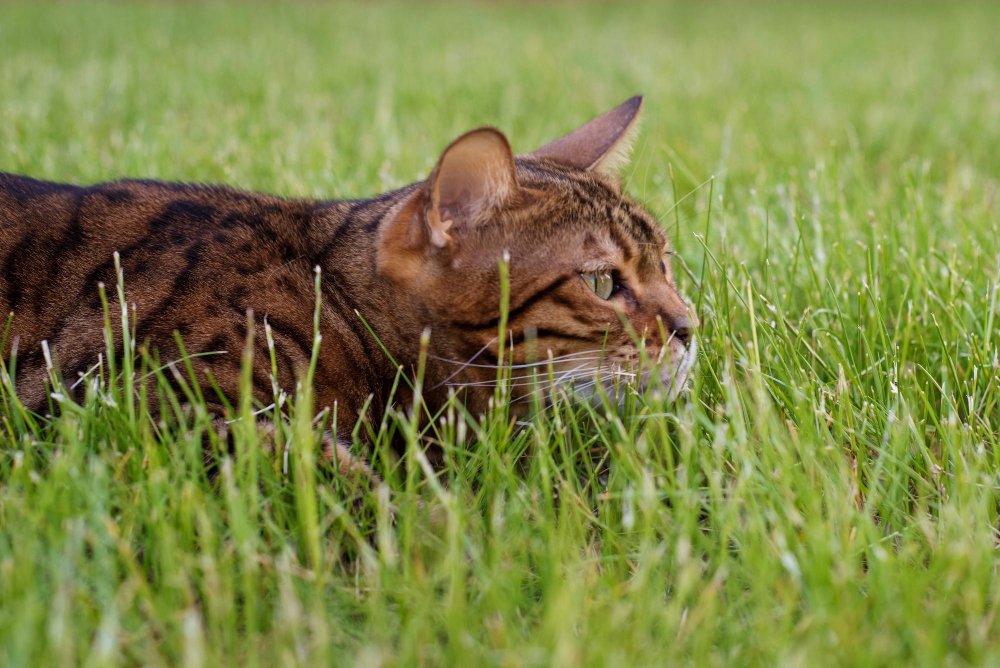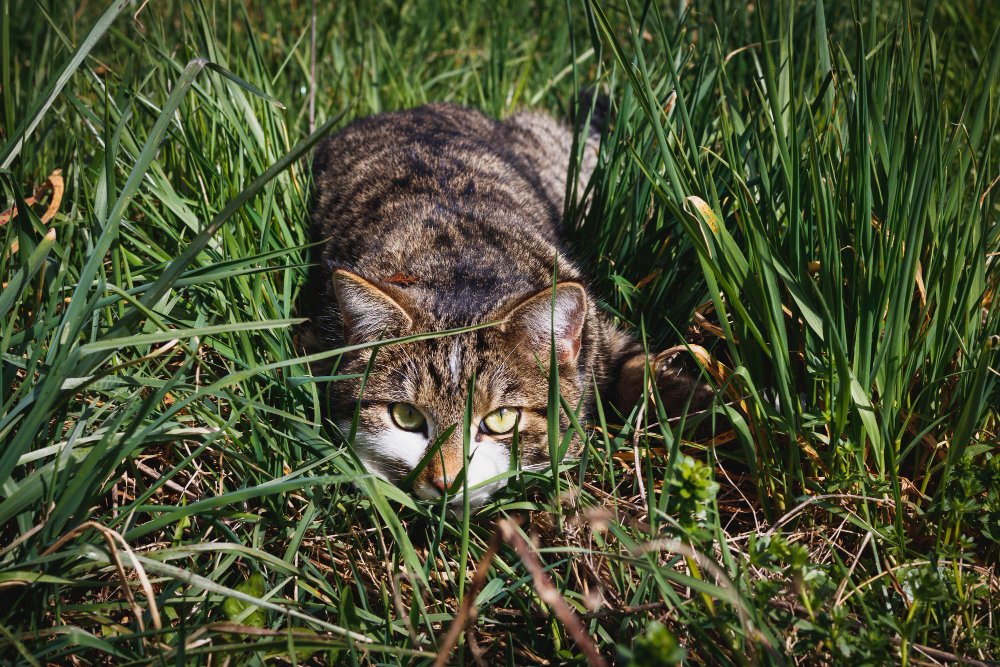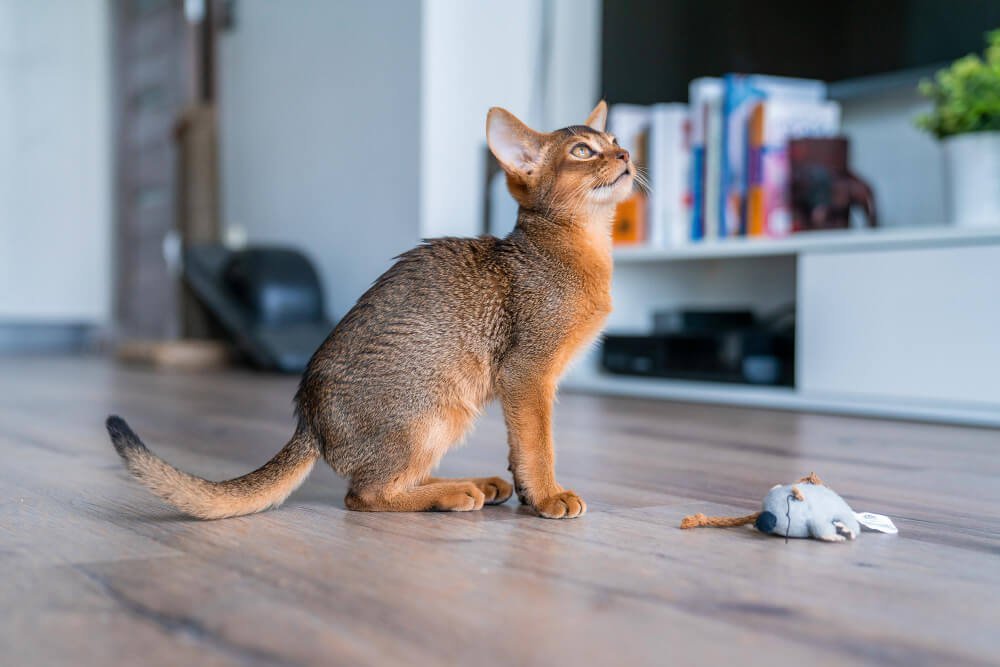Cats, both domestic and wild, have behaviors that are as fascinating as they are mysterious. Among these is their tendency to bring dead animals home, much to the bewilderment (and sometimes horror) of their human companions. This behavior may seem odd, but it holds significant meaning in the feline world. Let’s explore why cats bring dead animals home and what this peculiar habit reveals about their instincts, environment, and relationship with humans.

The Instinctual Roots of a Hunter
From their big cat ancestors to their domestic cousins, all cats are natural-born hunters. Even the fluffiest house cat carries within them the traits of a skilled predator. This hunting behavior stems from:
- Survival Instincts: Before domestication, cats relied on hunting for food. Their finely tuned senses, stealth, and sharp claws made them exceptional predators. This instinct remains deeply ingrained.
- Skill Reinforcement: Hunting isn’t just about food; it’s a way for cats to practice and maintain their predatory skills. Whether it’s a mouse, a bird, or even a toy, stalking and catching are behaviors that come naturally to them.
Why Cats Bring Prey Home
While the sight of a dead mouse on your doormat may not be pleasant, it’s essential to understand that this action holds purpose in a cat’s world.
1. A Gift for Their Human
Cats may bring dead animals home as a gift. Despite their solitary nature, cats form strong bonds with their owners. By presenting prey, they are sharing a resource, similar to how they might share with their young or members of their pride in the wild.
2. Teaching Behavior
Mother cats often bring prey to their kittens to teach them how to hunt. Your cat may view you as a member of their family who needs “training” and is offering you an educational moment.
3. Safe Eating Environment
In the wild, predators often bring their prey to a safe location to eat it without the threat of other animals stealing it. Your home, to your cat, is the ultimate safe haven.
4. Expression of Instincts
Even well-fed house cats retain hunting instincts. Bringing home prey is simply a way for them to express their natural behaviors, regardless of hunger.
The Emotional Connection: What It Means for You
Cats don’t just bring home prey to show off their hunting skills—they might also be seeking validation. By reacting positively (even if you’re internally cringing), you can strengthen your bond.
How Should You Respond?
- Stay Calm: Avoid scolding your cat, as they’re not being malicious.
- Redirect Behavior: Provide interactive toys that mimic prey, such as feather wands or laser pointers, to help satisfy their hunting drive.
- Clean Up Quickly: If the sight bothers you, discreetly dispose of the prey and sanitize the area.
Can You Prevent This Behavior?
While you can’t completely erase a cat’s instincts, there are ways to reduce their chances of catching and bringing home prey.
Keep Them Indoors
One of the most effective ways to prevent hunting is to keep your cat indoors. This limits their exposure to wildlife.
Bell Collars
Attaching a bell to your cat’s collar can alert potential prey and give them a better chance to escape.
Environmental Enrichment
Provide plenty of toys, climbing structures, and mental stimulation to keep your cat engaged without needing to hunt.
What Makes Cats Unique Hunters?

1. Silent Stalkers
Cats are equipped with soft paws and excellent night vision, making them silent and deadly predators.
2. Independent Predation
Unlike pack hunters such as dogs, cats hunt alone, relying solely on their skills and instincts.
3. Play as Practice
Even playful behavior in cats—pouncing on toys or chasing strings—mimics real hunting techniques.
The Role of Domestication
Though domesticated, cats have not strayed far from their wild roots. Their semi-domesticated nature means they retain traits of both pets and predators. This duality is what makes them such fascinating companions.
FAQs
Why do cats bring dead animals home?
Cats bring prey home as an instinctual behavior, often as a gift, a teaching tool, or to create a safe space for eating.
How can I stop my cat from hunting?
Keeping your cat indoors, using bell collars, and providing toys that mimic prey can help reduce hunting behavior.
Is it bad to scold a cat for bringing home prey?
Yes, scolding can confuse your cat, as they see this as a natural and sometimes affectionate action.
Do all cats hunt?
Most cats have an innate hunting instinct, but the intensity varies by individual personality and environment.
Why does my indoor cat still exhibit hunting behaviors?
Even without exposure to real prey, indoor cats mimic hunting through play, as it’s hardwired into their instincts.
What are the risks of my cat hunting outdoors?
Hunting outdoors exposes cats to dangers like predators, cars, diseases, and harmful substances.
Conclusion
Understanding why cats bring dead animals home helps us appreciate their complex behavior and strong instincts. While this habit may be challenging for humans, it’s a testament to their intelligence, affection, and wild ancestry. By respecting these traits and providing alternatives, you can guide your cat’s instincts in ways that suit both of you.

